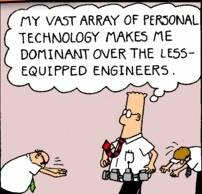January 19, 2016
Fourth industrial revolution will result in five million job losses by 2020 0
Disruptive global employment trends, including flexible working, the rise of robots, other forms of automation and Big Data analytics will see over five million jobs disappear worldwide over the next four years, a new report claims. The World Economic Forum’s Future of Jobs report has calculated that current disruptive labour market trends, including improvements in artificial intelligence, cloud technology, the Internet of Things and flexible working arrangements, could lead to a net employment loss of more than 5.1m jobs in the 15 countries surveyed. The report estimated that new trends would result in a total loss of 7.1m jobs – two thirds of which are concentrated in the office and administrative functions – and a total gain of 2m jobs. The WEF surveyed those who it felt were best placed to observe the dynamics of workforces including heads of HR departments and CEOs in 15 developed and emerging economies.

































December 21, 2015
From workplace wellness programmes to a positive workplace culture 0
by Mark Eltringham • Comment, Wellbeing, Workplace, Workplace design
(more…)